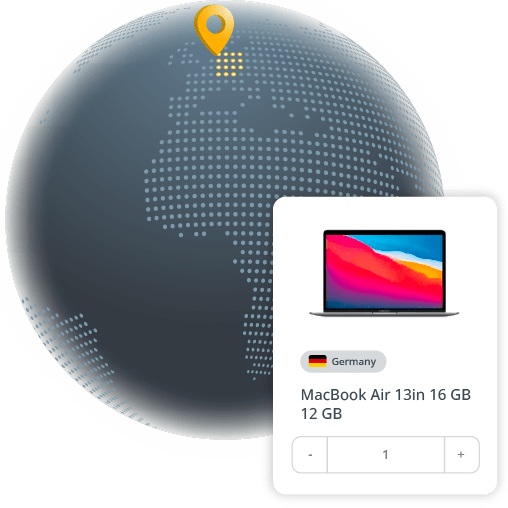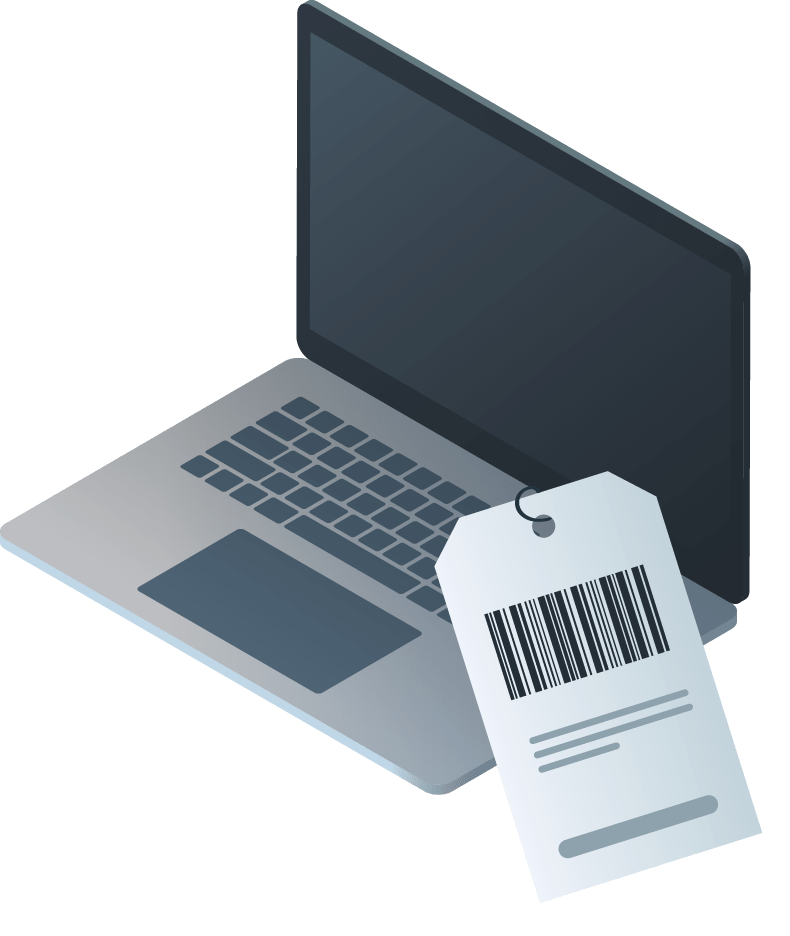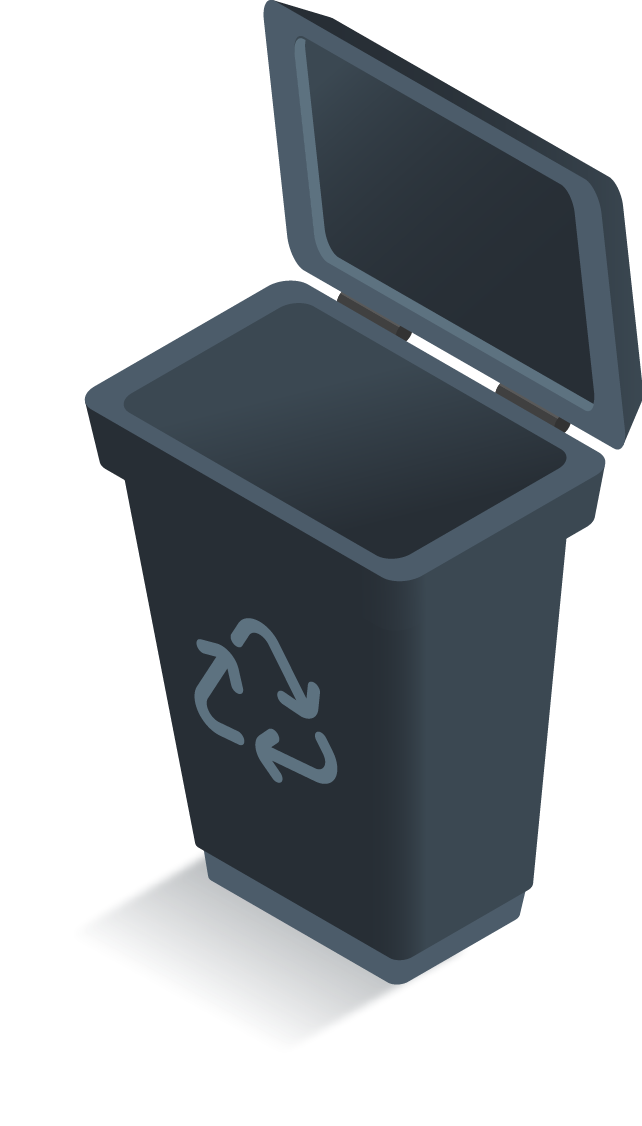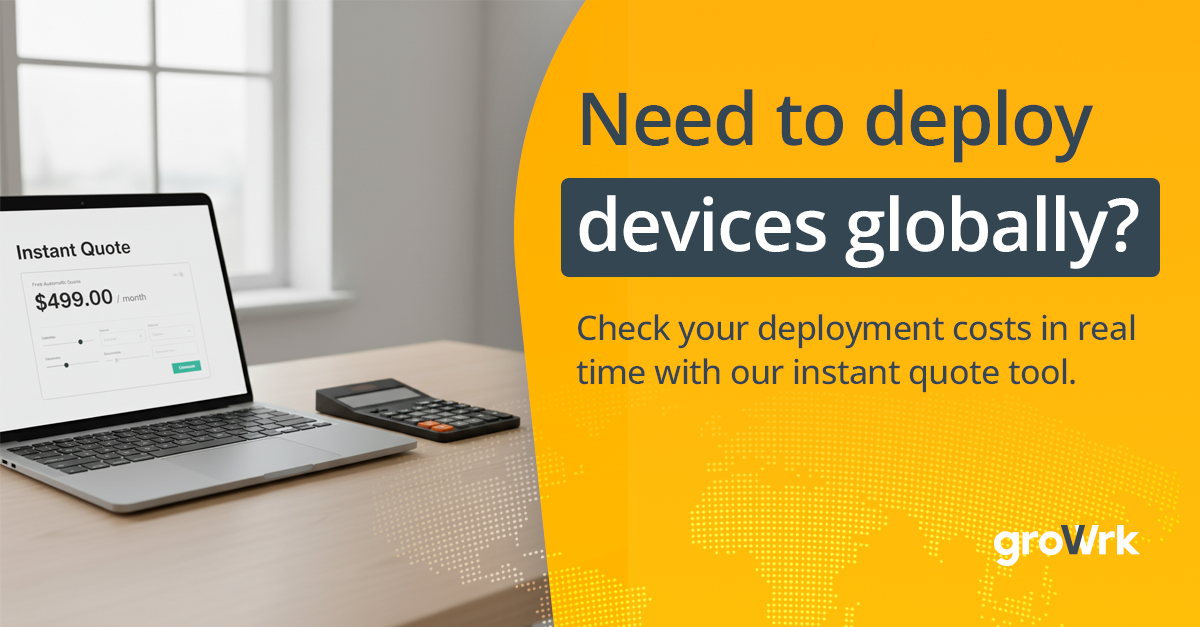How to send IT equipment to Germany
Need to send IT equipment like laptops to your distributed team in Germany? GroWrk takes the stress out of international shipping, IT asset management, and compliance. Effortlessly handle logistics, customs, and remote IT support for your global workforce.

At a glance
If you're planning to ship IT equipment or outsource IT services to Germany, it's essential to understand the country's prominent role in the global IT landscape. With its robust infrastructure, skilled workforce, and innovative tech ecosystem, Germany presents immense opportunities for businesses looking to expand. Here's what you need to know:
|
CURRENCY Euro (EUR) |
OFFICIAL LANGUAGE German |
TIME ZONE Central European Time (CET) GMT+01:00 (Central European Summer Time (CEST) GMT+02:00 during daylight saving time) |
|
CUSTOMS DUTY ON ELECTRONICS 0-14% + 19% VAT Varies, typically around 0-14% depending on the product category (e.g., laptops often have a 0% duty rate, while other electronics may vary). |
SHIPPING LEAD TIME 5-10 days (depending on location and shipping method) |
IT OUTSOURCING MARKET €33.19 billion In Germany, the IT outsourcing market is projected to generate revenue of approximately €33.19 billion by 2025. This market is expected to grow at a steady annual rate of 7.35% between 2025 and 2029, reaching an estimated volume of €44.07 billion by the end of the forecast period. |
Overview of IT operations in Germany

Government Initiatives: Programs like "Digital Strategy 2025" and "GAIA-X" are driving the country’s IT innovation, fostering data sovereignty, cloud adoption, and infrastructure development to strengthen Germany's position in the global IT market.
Skilled Workforce: Germany boasts a highly skilled talent pool, particularly in areas such as software engineering, cybersecurity, data analytics, and automation technologies.
IT Market Growth: Germany’s IT market is projected to grow at a steady pace, with an expected CAGR of 7.6% from 2024 to 2029. The market size is anticipated to reach €160 billion by 2030, driven by demand for digitalization and IT solutions.
Geographical Advantage: As the largest economy in Europe, Germany serves as a central hub for IT services, logistics, and connectivity, offering seamless access to both European and global markets.
Shipping IT equipment to Germany: What you need to know
| Customs regulations |
In Germany, IT equipment such as laptops, monitors, and other electronics are governed by strict EU import regulations. These rules are designed to ensure that products meet high European safety standards and adhere to environmental requirements, particularly concerning energy efficiency and materials used. Compliance with these regulations is crucial, as non-compliant items may face significant delays or, in some cases, may be refused entry into the country altogether. |
| Duties and taxes |
Most IT products, like laptops and smartphones, are exempt from customs duties, meaning they are charged at 0% duty. However, other types of electronic items might be subject to customs duties, ranging from 0% to 14%, depending on how the product is classified under EU customs regulations. In addition to the customs duties, a 19% Value Added Tax (VAT). is applied to the total value of the goods. This includes the product's price and any shipping and customs fees, so it’s crucial to account for this when calculating the total cost of importing IT equipment into Germany. |
| Required documentation |
|
| Import restrictions |
Certain items, such as non-compliant radio frequency devices or software with unlicensed encryption, may be restricted from entering Germany. These items must meet strict regulations to be allowed entry into the country. Other types of technology are subject to more stringent regulations and restrictions due to their sensitive nature or potential impact on national security. Here's a look at some of the key restrictions affecting IT equipment:
|
| New vs. Used equipment |
| Regulations differ when it comes to new and used IT equipment. While new equipment typically goes through standard customs procedures, used IT equipment is subject to more scrutiny due to concerns about safety, data security, and potential non-compliance with environmental standards. Used electronics may need additional documentation, such as certification proving the equipment meets EU environmental and recycling regulations. To comply with Germany's data privacy laws, used equipment must also be free of sensitive data. |
| Data Privacy Laws |
Data privacy and protection are major considerations when shipping and outsourcing IT services in Germany. With the implementation of the General Data Protection Regulation (GDPR), companies must be vigilant about collecting, processing, and transferring personal data within the EU. Here's how data privacy laws affect IT outsourcing:
|
| Penalties or fines for non-compliance |
|
Checklist for sending laptops to Germany
When shipping laptops to Germany, it’s important to follow a few best practices to ensure the process goes smoothly, and your equipment arrives safely and on time. Here are some helpful shipping tips:

Select trusted couriers: Choose reliable couriers such as GroWrk, DHL, UPS, FedEx, or Deutsche Post (DHL Express, Hermes, DPD) for international shipping. These carriers offer tracking services and have experience handling German customs procedures.
Check service levels: Select the appropriate shipping option based on urgency. Express shipping (2-5 days) for high-priority deliveries. Standard shipping (5-10 days) for cost-effective options.
Use high-quality packaging: Secure laptops with sturdy, padded boxes and protective materials like bubble wrap, foam inserts, or air cushions to prevent damage during transit.
Disassemble where possible: If shipping accessories like chargers, docking stations, or monitors, package them separately to prevent damage. Remove detachable components if applicable.
Label clearly: Ensure the recipient’s name, address, and contact details are correctly labeled. Mark the package as "fragile" to encourage careful handling.
Accurate product descriptions: On the commercial invoice, provide a detailed and accurate description of the laptop, including its brand, model, and serial number. Inaccurate descriptions may cause customs delays.
Value declaration: Declare the correct value of the laptop to avoid under- or over-declaring, which could lead to customs inspections or fines. The declared value determines any applicable duties and taxes.
Customs declarations: Since Germany is in the EU, shipments from within the EU do not require customs clearance. However, for shipments from outside the EU, include EU Single Administrative Document (SAD), commercial invoice, and packing list.
Proof of origin: If applicable, include a certificate of origin to determine eligibility for preferential trade agreements, which may reduce duties.
Understand import duties & taxes: Laptops are subject to 0% customs duties under the EU tariff classification but are subject to 19% VAT on the declared value.
Pre-pay duties and taxes: Some couriers allow for pre-paid duties and taxes to simplify customs clearance and prevent the recipient from facing unexpected charges upon arrival.
Protect against loss or damage: Consider purchasing shipping insurance for high-value laptops to protect against loss, theft, or damage during transit.
Compliance with German and EU regulations: Ensure compliance with EU electronic safety standards, including CE marking, WEEE (Waste Electrical and Electronic Equipment), and RoHS (Restriction of Hazardous Substances) regulations before shipping.
Use tracking tools: Major couriers provide real-time tracking—monitor shipments closely to anticipate customs clearance updates and delivery progress.
Stay in touch with the recipient: Notify the recipient about the expected delivery timeline, tracking updates, and any customs-related requirements to avoid delays.
Expect weather and seasonal delays: Winter weather and peak shipping periods (e.g., Christmas, Black Friday, and German national holidays) may cause delivery delays. Plan shipments accordingly.
German domestic delivery options: For final delivery, consider working with Deutsche Post, DHL, Hermes, DPD, or GLS Germany for efficient last-mile distribution.

Average cost of IT Equipment in Germany
Laptops (Business Grade):
- Mid-range: €700 - €1,500
- High-end: €1,500 - €3,000+
High-end models such as Apple MacBook Pro, Dell XPS, and Lenovo ThinkPad are priced on the higher end.
Monitors (Business Grade):
- Standard: €150 - €300
- Ultrawide/4K: €400 - €1,000
Monitors from trusted brands like Dell, Samsung, and LG typically range within these prices, with 4K or ultrawide models costing more.
Desktops (Business Grade):
- Standard Desktop PC: €500 - €1,500
- Workstation Desktop (for high-performance tasks): €1,500 - €3,500+
Prices depend on the brand and specifications, with options from HP, Lenovo, and Apple among the most common.
Printers (Laser):
- Standard Office Printers: €150 - €400
- High-Volume Printers: €600 - €2,000+
Leading brands such as HP, Canon, and Brother offer a wide range of models for office environments.
Public holidays & IT work hours to plan your shipment
Key public holidays in Germany:
- New Year’s Day: January 1 (Wednesday)
- Good Friday: April 18 (Friday)
- Easter Monday: April 21 (Monday)
- Labour Day: May 1 (Thursday)
- Ascension Day: May 29 (Thursday)
- Whit Monday: June 9 (Monday)
- German Unity Day: October 3 (Friday)
- Christmas Day: December 25 (Thursday)
- Boxing Day: December 26 (Friday)
Typical work hours for IT professionals
- Office hours: Monday to Friday, 9:00 AM to 6:00 PM.
- Break times: A 30-minute to 1-hour lunch break is common, typically around 12:00 PM to 2:00 PM.
- Remote work: Many IT professionals have flexible schedules, especially with the rise of remote work policies.
What to consider when retrieving IT equipment from employees in Germany
| Local delivery and logistics services |
|
| Inventory management |
|
| Logistics challenges for remote locations |
Germany is a highly developed country with an extensive infrastructure, including well-connected roads and rail networks, minimizing logistical challenges in most areas. However, rural or mountainous regions might experience slight delays due to fewer delivery centers and limited courier availability. Working with local logistics partners who offer specialized services for remote areas is advisable to ensure timely pickups. |
| Equipment agreement with employees |
To safeguard company assets, it’s critical to have a signed Equipment Agreement with employees. This agreement should outline:
|
How to dispose of IT equipment in Germany
Guidelines for disposing or repurposing IT assets
- Compliance with the Electrical and Electronic Equipment Act (ElektroG): The ElektroG mandates that manufacturers, distributors, and importers are responsible for the entire asset lifecycle management, including proper disposal.
- Public collection points: Consumers can dispose of waste electrical and electronic equipment (WEEE) at designated collection points free of charge, such as local recycling centers managed by public waste authorities.
- Retailers: Distributors with a sales area of at least 400 square meters for electrical equipment are required to accept returns of small WEE (maximum edge length of 25 cm) without any purchase obligation. For larger equipment, returns are accepted upon the purchase of a similar item.
- Commercial entities: Businesses disposing of IT equipment not classified as historical WEEE are responsible for its proper disposal. Producers must offer a reasonable return option, but if not utilized, the end user bears the responsibility and cost of disposal.
Data security measures
Before disposing of IT equipment, ensure all data is securely erased to comply with data protection regulations like the General Data Protection Regulation (GDPR) in Germany to prevent unauthorized access.

Local IT Outsourcing Solutions in Germany
You can streamline your IT logistics and asset management with GroWrk’s comprehensive global solution. Whether it’s shipping equipment or managing IT assets across multiple regions, GroWrk helps you stay compliant and efficient, every step of the way. Here’s why GroWrk is the ideal partner for managing your IT assets in Germany:

| 1. Wide global coverage |
| With operations in over 150 countries, including Germany, GroWrk guarantees smooth deployment and management of your IT equipment for remote teams. Wherever your employees are located in Germany, we ensure timely and hassle-free service to keep your business running efficiently. |
| 2. End-to-end asset management |
GroWrk simplifies the entire IT asset lifecycle, covering procurement, deployment, management, and retirement. By handling all logistics and compliance, we allow your team to focus on business growth, while we take care of IT operations. |
| 3. Intuitive platform for easy deployment |
GroWrk’s user-friendly platform makes it effortless to deploy and manage IT devices in Germany. With just a few clicks, you can order, ship, and track equipment, reducing administrative overhead and minimizing costly errors. Our platform streamlines IT operations, cutting down on time and costs. |
| 4. Smooth delivery and equipment retrieval |
From delivering laptops, monitors, and IT accessories to remote employees across Germany to retrieving assets from outgoing team members, GroWrk handles it all. We simplify the process so your team can focus on what matters most—delivering results. |
| 5. Compliance with German import regulations |
GroWrk ensures that all shipments adhere to German import requirements, including CE certification, WEEE disposal, and tax compliance. By managing these details, we eliminate the risk of delays or fines, ensuring your IT equipment arrives on time and fully compliant. |
| 6. Efficient repairs and maintenance |
GroWrk manages the entire repair and maintenance process, ensuring your devices remain in top working condition. From routine checkups to emergency fixes, we handle everything—allowing your teams to stay productive without worrying about technical disruptions. |
| 7. 24/7 Support for peace of mind |
Whether you need shipping, asset management, or troubleshooting assistance, GroWrk offers round-the-clock customer support. Our team is available anytime to guide you through the complexities of IT asset management and resolve any issues quickly. |
Procure, configure, and deploy your IT devices from one platform


